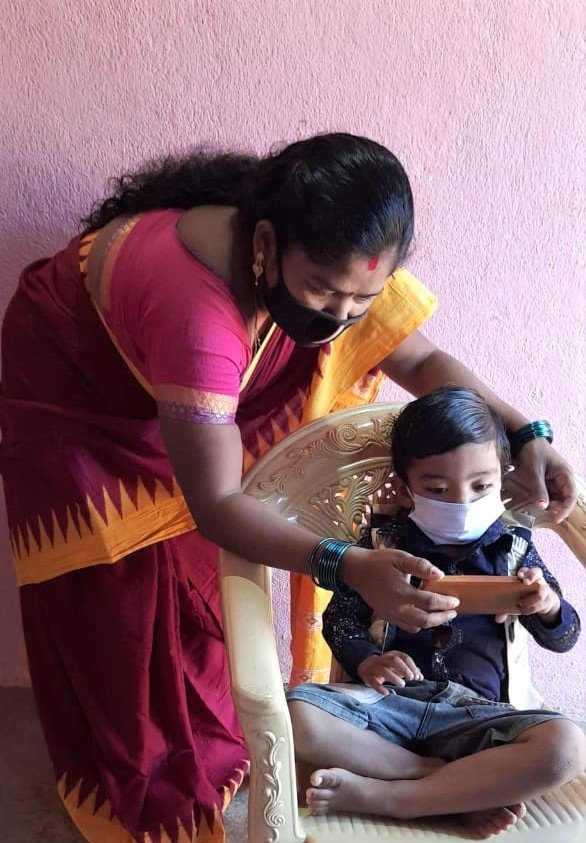Lanjigarh, Kalahandi District, Odisha: Nand Ghar, Vedanta Group’s flagship corporate social responsibility project, has launched Interactive Voice Response System (IVRS) to boost accessibility, reach and effectiveness of its e-learning modules for children hailing from remote villages of Odisha’s Kalahandi and Rayagada districts. Designed for basic cell phones, the IVRS and e-learning content are customized for homeschooling of children belonging to financially strapped families that may not own smart phones.
The project also offers smartphone-based e-learning modules, which can be disseminated through messaging platforms like WhatsApp, for home-schooling of children. In the wake of COVID-19, when Nand Ghars were shut, these modules played a crucial role in ensuring that children from rural hinterland continued their education uninterrupted at home. IVRS-based modules are the latest addition to a slew of transformative initiatives undertaken by Vedanta’s Nand Ghar project to overcome barriers of digital divide, bringing accessible technology closer to the needy and underprivileged for unimpeded education.
Speaking on the initiative, Rahul Sharma, CEO-Alumina Business, Vedanta Ltd, said, “Vedanta remains committed to fostering socio-economic transformation in our areas of operations. We believe that access to quality education is the first step towards a better quality of life and Vedanta has invested in running significant education programs in the region. Our Nand Ghar project has been crucial in helping children from underprivileged households continue their education at home through e-learning modules during the pandemic. The recently launched IVRS will strive to strengthen this initiative for greater reach and accessibility.”
Nand Ghar’s e-learning modules comprising stories, games, rhymes, home based activities, moral science lessons and more are designed to aid parents educate their children holistically at home. Besides fostering grassroots education, it increases partnership and ownership of parents in their children’s education during the formative years. Today, over 1200 children under the age of six are connected to this initiative through 50 Nand Ghars, receiving regular and quality e-content for seamless learning as schools, anganwadis and Nand Ghars continue to remain closed due to the pandemic.
Ritu Jhingon, CEO Project Nand Ghar added, “In the current times of pandemic, it is relevant to innovatively reach out and engage with children for their continued education. Providing education through e-learning videos and IVRS in their local language Oriya has ensured that learning is aided seamlessly. We have ensured that no child is bereft of the education they deserve.”
Complimenting Vedanta on the initiative, Bakatpur’s Rukuni Ganda, whose daughter is availing this e-learning facility, says, “Amid the pandemic, with curtailed classroom education, e-learning has become critical in ensuring seamless continuation of education across the world. I’m delighted that Vedanta’s Nand Ghar project has developed good e-learning courses for children from rural communities to self-study and keep up their education. Now, with the launch of IVRS, children from families that do not own smart phones can also avail the courses and be benefitted.”
Vedanta’s 1400 plus Nand Ghars across seven states are working towards creating a better tomorrow for women and children. The programme aims to touch lives of 40 lakh people, directly impacting 2,00,000 children and 1,80,000 women, annually.







